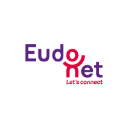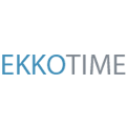Adopt a tailor-made CRM to boost your sales and customer relations

Wondering what a custom CRM can do for you? As part of your digital marketing strategy, personalization is king, whether it's your tools, adapted to your business, or your customer relations.
CRM software is invaluable for effective customer relationship management: it's your customer's memory. It keeps track of all your exchanges with customers and prospects, their profiles and your sales performance.
Are you hesitating between free CRM solutions and more advanced software? It's all a question of needs... and strategy!
If budget is a constraint, you should know that customized software offers you a range of services at very affordable prices, paid for by the time and productivity they save you. The fact that they offer à la carte modules can actually give you unbeatable value for money.
How do you choose the software best suited to your needs? Read on for some advice and a CRM comparison of 8 bespoke tools.
What is a custom CRM?
Custom CRM: definition
Unlike a "turnkey" CRM, where everything is pre-configured and little can be adapted to your specicific needs, a custom CRM tool offers ready-to-use modules that can be combined either with existing third-party applications, or with 100% customized applications (or business software) developed on demand.
These may concern :
- online payment,
- e-commerce,
- automatic invoice generation,
- corporate social networks,
- emailing solution integration...
The result: you create your own CRM, with an interface tailored to your needs and an à la carte subscription.
Why opt for a customized CRM tool?
- ✂️ It's all about customization
Your CRM doesn't look like any other, it looks like you. Do you want to stand out from the crowd? That starts with configuring your own tools.
- 💪 For efficiency
It can dialogue with your website, your accounting and/or your ERP tool.
Choosing tailor-made modules avoids having features that are superfluous to your business, allowing you to focus on the essentials.
- 👭 For collaboration
Multiple users can log in at the same time thanks to unique identifiers.
Internal communication is facilitated by integrated chat options and shared calendars, for example.
- 👌 For quality
The equation is simple: the more the tool is adapted to your needs, the less time you waste on it, both in learning and in use.
The reporting task is no longer perceived as a constraint, which improves the quality of the information entered.
- 🔎 For cross-functionality and visibility
Sales, accounting, marketing and other departments have specific but complementary missions.
Thanks to a customized CRM, they have a global, shared vision of objectives achieved and to be achieved, and of the evolution of customer relations.
The more the tool is adapted to the company, its sector and its business model, the clearer the information appearing on the interface and dashboards will be for everyone.
- 👮 For security
Existing solutions offer backups and digital safes.
However, depending on whether data are hosted in France or abroad, they are not subject to the same protection.
- ⤴️ For evolution
The technical support package enables the tool to be upgraded in real time and on an ongoing basis.
Even well thought-out software, well defined in the specifications, will need adaptations after use, thanks to user experience (back-office and customers).
- 🎯 For customization
If custom CRM is accessible in the back-office for the company, and its interface customized (colors, logo, etc.), it can also be accessible in the front-office for customers.
Segmented by type, it is possible to configure what they have access to (certain products or services), enable them to identify themselves, place online orders, subscribe to specific newsletters, etc. The offer adapts completely to demand.
- 🔁 For interoperability and task automation
Modules can interact with each other. For example, the database can send end-of-contract information to the integrated emailing tool, which in turn sends an automatic reminder email to the customer.
A salesperson who spends less time entering data spends more time selling.
Which functions can be customized in a custom CRM?
To help sales reps sell more and better, become more agile and perform better, several features of your custom CRM can be personalized:
Customer data management
Adapting the structure of customer/company files and input fields to the type of information you need to collect according to your activity gives you precise knowledge and a 360° view of your customers and prospects.
Lead management
An essential element of a sales approach that differs from one company to the next, personalization enables fine-tuned management of sales pipelines and sales cycles of varying complexity and length. Adapting this function in your custom CRM enables you to clearly visualize all your sales stages, from first contact to contract signature.
Database segmentation
This cross-functional feature enables each user to extract specific data to be used in their reporting and dashboards for one-off operations such as
- prospecting,
- follow-up,
- and targeted marketing operations.
The definition of criteria must correspond to your business and strategic objectives.
Automate repetitive tasks and processes
This customized CRM functionality helps to increase team efficiency and proactivity. You'll never miss an opportunity again, thanks to a workflow perfectly aligned with your internal processes and working methods.
Dashboards and reporting
Customization with key performance indicators (KPIs) relevant to your business activity is essential. Aligned with the company's strategic objectives, these tools provide your sales forces with immediate, synthetic information on the status of their portfolio, the profitability of their actions, and the tasks to be accomplished in the short and medium term.
Custom CRM tools
A free or paid custom CRM tool?
Of course, "custom" and "free" don't go together.
"Excel" and "custom" don't mix either.
If this is the tool you're currently using to manage your database and produce your dashboards, you'll have to change sooner or later. It's not customizable, nor is it suited to collaborative or mobile working.
What's more, once your contact file has grown too large, it will become unreadable and difficult to use, even with filters.
You'll then need to migrate your data to a suitable CRM program, by exporting your Excel file in .csv format.
☝️ Good news: most CRM solutions offer a mapping system to match the columns in your Excel file with the fields in the CRM database and detect any errors.
🤓 Some software packages offer free versions, but although attractive, the free version often hides a software package with basic functionalities, additional paid services (hosting of your data), a limited number of users or even a simple evaluation version.
As soon as you make specific requests, you'll have to pay a subscription fee.
What's the difference between CRM and ERP?
When researching CRM solutions, you often come across the acronym ERP.
In fact, a CRM tool integrates perfectly with an ERP ( Enterprise Resource Planning) solution, which is a management tool whose modular operation includes accounting, human resources, logistics, suppliers, sales... and customer relationship management.
The ERP tool thus enables much more global management of a company's data, while the CRM tool is dedicated specifically to customer relationship management.
Many CRM solutions are evolving towards ERP solutions, and most ERP solutions offer a CRM module.
Focus on 5 tailor-made CRM software solutions
Cirrus Shield, the innovative CRM for VSEs, SMEs and ETIs
Named one of the world's 10 most innovative CRMs, Cirrus Shield is fully customizable with business applications to manage your company's various activities.
It offers turnkey modules by business sector, as well as pre-built modules adaptable to your needs, whether you're in e-commerce, consulting or service.
Highlights :
- a streamlined interface,
- a powerful reporting tool,
- all modules available on mobile, tablet and PC.

Cirrus Shield
Eudonet, 100% customizable, for VSEs, SMEs and ETIs
Eudonet is an all-in-one solution designed for companies, real estate agencies, private equity, franchise networks, higher education, associations and the public sector. It puts your CRM at the heart of your information system, connecting it to all your applications such as your website, your business software or your ERP...
Key strengths :
- over 18 years' experience,
- scalable functionalities based on the latest technologies,
- 13 languages supported.

Eudonet CRM
Customer satisfaction-oriented Initiative CRM for small and medium-sized businesses
Initiative CRM allows each company to customize the tool according to its own needs, and adapts to its growth. Its simple, clear configuration interface lets you create a software program that reflects your image, in complete autonomy. It helps companies save time and customers at every stage of their sales cycle: prospecting, customer follow-up, marketing, sales management, advanced reporting...
Key features :
- fast learning curve,
- advanced reporting in real time,
- all modules and tools are customizable.

Initiative CRM
Salesforce Sales Cloud, the global leader, from small businesses to large corporations
Salesforce Sales Cloud draws its inspiration from the international companies it works with to develop and continuously improve software, and from the latest technologies in social networking, mobility, Big Data and more.
The highest ranges offer the development of satellite applications to CRM.
Highlights :
- thousands of connectable software applications,
- optimal security and unlimited support,
- multi-currency management.
Teamleader, CRM, invoicing and project management for small businesses
Teamleader is more than just a CRM, it's a real productivity booster thanks to its collaborative features combining customer relationship management, quotation and invoicing, and project management. The CRM enables you to create a close relationship with your customers, while the task management and cloud telephony solution allow you to coordinate internally to work more efficiently.
Highlights :
- a clean, user-friendly interface,
- numerous connected applications (Mailjet, Jira, G Suite, Sage One, etc.),
- a modular offering with a competitive price/performance ratio.
3 ERP software packages in SaaS mode integrating a customized CRM solution
Axonaut, the high-performance, flexible tool for self-employed entrepreneurs and SMEs
Axonaut is an ERP for high-performance business management, with a perfectly integrated CRM, an ergonomic interface and functions such as automatic generation of invoices and estimates, as well as modules for personnel management, administrative management and project management. CRM gets straight to the point: prospect follow-up, customer cycle tracking, exchange tracking, etc.
Strengths :
- simplicity,
- ergonomics,
- customer service.

Axonaut
Ekkotime, the 100% customized ERP, from small businesses to large groups
Ekkotime has developed basic modules for standard business needs (prospect and customer management, quotation management, order management, planning management, invoice management, accounting interface, etc.), but also offers the development of specific modules at the request of companies. He will support and advise you on internal processes that can be improved.
Our strengths :
- comprehensive services: ERP, CRM, invoicing,
- configuration assistance and 24/7 support,
- a team of experts who adapt modules and develop new ones on demand.

Ekkotime
Sellsy CRM, the intuitive solution made in France, for VSEs and SMEs
Sellsy is an all-in-one solution for managing your entire customer cycle.
Intuitive and modular, it gives sales reps and account managers the global vision they need.
Comprehensive, it lets you efficiently manage prospecting, sales, invoicing, customer follow-up, marketing... all within a single interface.
Highlights :
- an all-in-one tool: CRM, Invoicing, Customer Support,
- optimized prospecting follow-up,
- highly efficient invoicing interface.
It's all a question of strategy - yours!
Each structure has its own needs and solutions to meet them.
Depending on your budget, your priorities and your digital marketing strategy, however, it's essential to invest in an effective CRM tool if you want to continue your development.
Perhaps turnkey software will suffice. But if your needs intensify, a customized CRM is your best ally, or even an ERP integrating a customized CRM, if you're looking for a more comprehensive management software package.
Now you've got something to think about. Now it's up to you!
Custom CRM: the FAQ
Custom CRM vs. standard CRM: what's in it for me?
Compared to a standard, packaged solution, custom CRM is the solution for companies that want to optimize their customer relationship management and improve the productivity and performance of their staff.
Thanks to the advanced customization of its functionalities, custom CRM easily adapts to your company's internal processes and strategic objectives. The optimized automation of tasks and processes, the implementation of personalized workflows, and the availability of customized dashboards and reporting tools all enhance the efficiency of your teams. The productivity gains of a custom CRM are significant compared to a standard CRM, which is limited in terms of parameterization.
While the initial investment is a little higher for a custom CRM, its return on investment (ROI) is higher. What's more, it guarantees increased productivity and continuous adaptation to your company's needs and your teams' working methods.
Should you develop your CRM in-house or use a modular software vendor?
Considering in-house CRM development is not necessarily the best option, given the complexity of such a project, the financial costs and the technical and human resources involved. Even if it will match the company's processes for a while, an in-house development may create dissatisfaction for users in terms of ergonomics.
Above all, it may not adapt nimbly to changing technologies and user needs. It may also fail to meet complex security and interfacing requirements with other components of the information system, such as ERP. In-house development also entails hidden costs that can be substantial, particularly in terms ofmaintenance and integration into the company's ecosystem.
By choosing a custom CRM solution developed by a modular software vendor, you benefit from a tried-and-tested solution that is perfectly adapted to your company's processes and your staff's way of working, thanks to customizable functionalities.
Fast to implement, with a secure, state-of-the-art technological environment, particularly in the case of SaaS solutions, custom CRM is an excellent compromise between an internally-developed solution and a standard CRM. With a bespoke CRM, you benefit from a scalable, secure system, perfectly aligned with your company's processes and strategy, and from fixed-price maintenance services.
How much does a custom CRM cost (and how can I optimize the budget)?
With new technologies in SaaS (Software as a Service) mode, you can tailor your investment precisely to your company's needs. On a subscription basis, the price you pay for your custom CRM is calculated according to the number of users, modules and value-added services you subscribe to.
For example, Salesforce Sales Cloud for small businesses starts at €25 per month per user. The price rises to €330 per month per user for the Unlimited version, designed for large groups, with full functionality, automation, predictive and generative AI, and 24/7 support.
To the fixed price you pay for your customized CRM, you need to add installation and training costs (including skills transfer to ensure your teams are self-sufficient). To avoid any additional costs associated with upgrades, it's advisable to choose a solution that includes maintenance and updates as part of the package.
When should you switch to a customized CRM? Warning signs
If your company's customer relationship management is based on standard tools, sales teams and management will soon need to switch to a customized CRM. This is the only tool capable of optimizing their processes and improving their sales performance, conversion and retention rates.
It's time to implement a customized CRM if your teams are starting to spend time tinkering with their standard CRM in an attempt to adapt their sales pipeline management to the company's processes. It's also a no-brainer when your employees are forced to use third-party, non-synchronized tools to obtain personalized tracking of their activity and automate some of their day-to-day tasks.
Yet this practice poses a risk of scattering data, which can call into question its integrity, security, confidentiality and compliance with the General Data Protection Regulation (GDPR).
Article translated from French